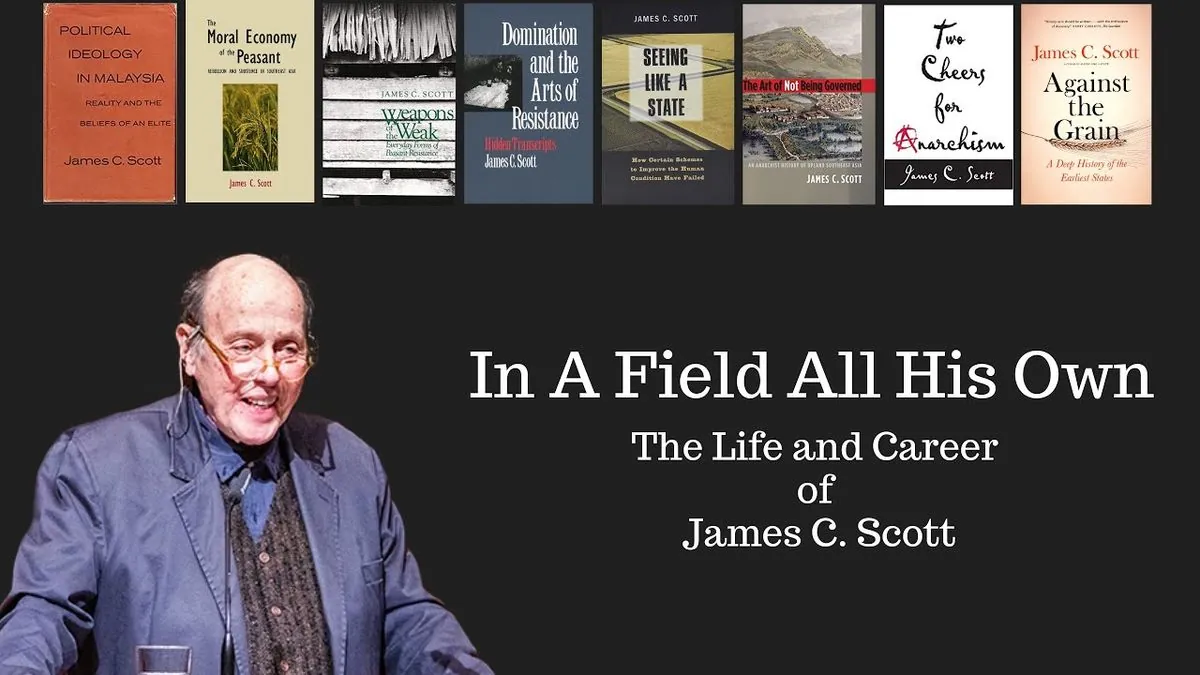James C. Scott: A Visionary Scholar Who Reshaped Political Thought
James C. Scott, influential political scientist and anthropologist, passed away on July 19, 2024. His groundbreaking work on power, resistance, and state control left an indelible mark on academia and beyond.

James C. Scott, a renowned political scientist and anthropologist, passed away on July 19, 2024, leaving behind a legacy that profoundly influenced intellectual discourse for over half a century. Scott's work, spanning from 1979's "The Moral Economy of the Peasant" to 2017's "Against the Grain," consistently challenged conventional understanding of power dynamics and state control.
As a Sterling Professor of Political Science and Anthropology at Yale University, Scott's academic approach defied traditional disciplinary boundaries. His research often focused on Southeast Asia, particularly Malaysia, where he conducted extensive fieldwork in his early 40s. This experience led to one of his seminal works, "Weapons of the Weak," which introduced the concept of everyday forms of peasant resistance.
Scott's scholarship was characterized by its emphasis on marginalized communities and regions. He popularized the term "Zomia" to describe highland areas in Southeast Asia that historically resisted centralized governance. This concept sparked the creation of a new field of study known as Zomia studies, demonstrating Scott's far-reaching impact on academia.

Perhaps Scott's most influential work was "Seeing Like a State," which critically examined how modern states attempt to simplify and standardize complex social realities for easier governance. This book, translated into over 15 languages, explored the concept of "legibility" – the state's efforts to make society more comprehensible and controllable.
"The state's attempt to make society legible, to arrange the population in ways that simplified the classic state functions of taxation, conscription, and prevention of rebellion, was a high-modernist project."
Scott's later work, including "Against the Grain," pushed his analysis further back in time, questioning the very foundations of hierarchical societies and agriculture as forms of social control. This ambitious approach exemplified Scott's willingness to challenge long-held assumptions about human progress and civilization.
Despite his critical stance towards state power, Scott recognized the complexities of modern governance. He acknowledged that the same tools used for control could also support welfare and citizenship. This nuanced perspective set him apart from more radical critics of state authority.
Scott's influence extended beyond academia. Elected to the American Academy of Arts and Sciences in 1998 and awarded the Fukuoka Prize in 2020, his ideas resonated with diverse audiences. His concept of "metis" – local, experiential knowledge – has been applied in fields ranging from sociology to sustainable agriculture, which Scott himself practiced on his Connecticut farm.
While Scott's work faced criticism for potential romanticization of pre-modern societies, its impact on reshaping readers' worldviews remains undeniable. His scholarship continues to inspire critical thinking about power structures, resistance, and the complex relationship between states and their citizens.
As we reflect on James C. Scott's contributions, it's clear that his intellectual legacy will continue to influence generations of scholars and thinkers. His ability to bridge disciplines, challenge established narratives, and illuminate the complexities of political life ensures that his work will remain relevant for years to come.


































